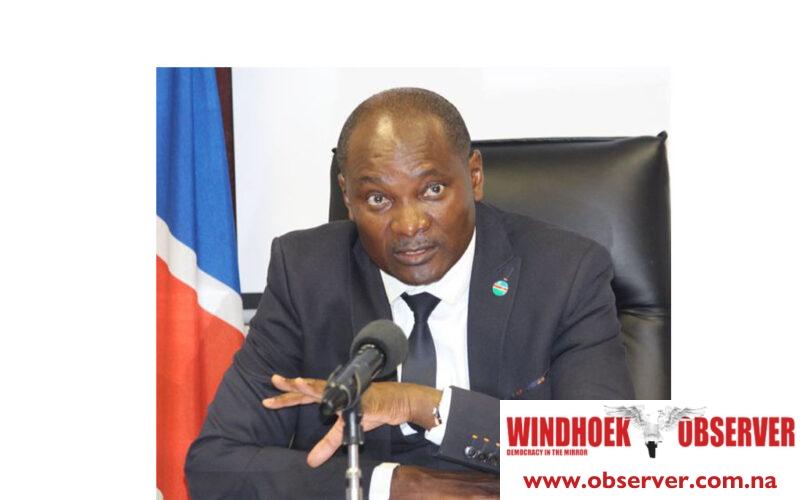Niël Terblanché
Rising temperatures, changing rainfall patterns, and increased climate variability are among the most difficult challenges faced by Africa.
Climate change poses an existential threat to the population, environment, and economy of the continent.
Pohamba Shifeta, Namibia’s Minister of Environment, Forestry, and Tourism, called on regional leadership for collective action against the pressing climate crisis.
He officiated at the official opening of the Green Climate Fund’s Regional Dialogue with Africa.
Shifeta stressed the disproportionate impact of climate change on Africa, despite the continent’s minimal contribution to global greenhouse gas emissions.
“The consequences of climate change in Africa are vast, ranging from agricultural production disruptions to food security concerns, soil degradation, increased pest and disease pressure, desertification, floods, deforestation, and erosion. It is evident that climate change represents one of the most substantial environmental, social, and economic threats to the continent,” he said.
According to Shifeta, African countries, while recognizing the urgency of adapting to climate change, have outlined ambitious goals in their Nationally Determined Contributions (NDCs) to the Paris Agreement.
However, many of these commitments are contingent on receiving adequate financial, technical, and capacity-building support.
“Climate finance is crucial to help Africa adapt to the growing impacts of climate change while aligning its development with the goal of limiting global warming to below 1.5°C,” he added.
According to Shifeta, public funding alone will not suffice to meet the magnitude of investments required. The private sector holds significant potential for addressing Africa’s climate finance needs, provided that supportive policy frameworks, investment environments, and concessional financing are in place.
Shifeta stressed the need for developed countries to fulfil their pledges regarding climate and development finance, particularly doubling adaptation finance for Africa.
He showcased several GCF-funded projects, including the Community-Based Natural Resource Management Enhancement for Drought Adaptation (CBNRM EDA), Climate Resilient Agriculture for Varying Environments (CRAVE), Integrated Resilient Ecosystems Management in Arid Namibia (IREMA), and Ecosystem-based Adaptation (EbA), totalling over N$640 million Namibian dollars.
He said these projects exemplify Namibia’s commitment to tangible, impactful change and collaboration with the Green Climate Fund.
The recent re-accreditation of the Environmental Investment Fund of Namibia with the Green Climate Fund highlights the opportunities arising from this renewed commitment. Namibia stands ready to share its experiences and lessons learned with fellow African nations.
The Green Climate Fund, as the world’s largest climate fund, plays a vital role in supporting developing countries in achieving their NDC ambitions.
Shifeta urged all delegates to use the dialogue as an opportunity to strengthen the impact of the GCF across the region.
The focus on advancing programming, developing robust project ideas, and enhancing the capacity of Direct Access Entities underscores the shared commitment to turn aspirations into impactful actions.
Shifeta encouraged dialogue participants to increase their understanding of the GCF and other stakeholders’ priorities, policies, tools, guidance, challenges, and ideas related to engagement with the GCF.
He was of the opinion that the Regional Dialogue is not merely a knowledge exchange platform but a pivotal moment to foster collaboration and strengthen partnerships in the face of climate challenges.
The event, aptly themed “Inspire More Climate Action,” serves as a testament to the shared commitment of African nations to confront the urgent challenges posed by climate change.
Namibia is hosting this pivotal dialogue, which brought together National Designated Authorities (NDAs), accredited Direct Access Entities (DAEs), international Accredited Entities (AE), and other partners of the Green Climate Fund (GCF).
The gathering provides a unique platform for transcending borders, fostering accelerated engagement, peer-to-peer learning, and the exchange of best practices.
Shifeta highlighted the potential for a low-carbon, climate-resilient path to drive Africa towards sustainable development.
“However, achieving this vision requires a significant ramp-up in investments in energy transitions, sustainable infrastructure, climate change adaptation, resilience, and the restoration of natural capital and biodiversity,” he said.
Shifeta said that the platform’s potential to transcend borders, fosters accelerated engagement, peer-to-peer learning, and the exchange of best practices for the common development of the continent.
The Regional Dialogue offers a unique opportunity for African nations to engage with the GCF and create partnerships that mobilize resources, both from external stakeholders and local partners through public-private partnerships.




